As seen in:
Fees & Insurance
Here at The Keely Group, we get a lot of questions from new patients regarding how to pay for therapy in New York City. There are many different ways you can pay for sessions with a Keely Group therapist, including health savings accounts (HSA), flexible spending accounts (FSA), and payment plans. Out-of-network insurance reimbursement can also make counseling in NYC more affordable.
Trying out a new therapist is challenging enough without having to worry about the cost of therapy. Our patients don’t want any surprises in terms of pricing or payment (and neither do we). To help patients make the most of their financial resources, we’ve compiled a list of FAQs regarding how to pay for therapy at our New York City online therapy practice:
-
A 20-minute phone consult with one of our therapists to ascertain fit is free of charge. Contact us to schedule a consult.
We offer self-pay therapy sessions only. Fees for weekly, 45 minute individual sessions range from $200 to $400. Fees for weekly, 60-minute couples’ sessions range from $300 to $525. Fees are commensurate with the level of experience and advanced training for each of our clinicians.
-
As a self-pay therapy practice, we are not in-network with any private insurance companies (nor with New York’s Medicaid program), so we cannot bill your insurance company for payment. Your plan may agree to reimburse you later, but the initial copayment for counseling comes out of your own pocket.
Another term people use to refer to self-pay therapy is “cash pay,” but that doesn’t mean you have to pay with literal dollar bills or a cash app. As online therapists, we accept online payments via any major credit card.
-
Insurance can help bridge the financial gap between patients and the therapy services they seek. However, there are downsides to in-network insurance arrangements. One is that patients are limited to a small number of networked therapists who may not specialize in the area they need or who may not be experienced. Another is that patients risk being forced to change therapists should they change employers (and thus change insurance plans) or if their employer opts into a different insurance carrier’s plans at the end of the benefit year.
In-network therapy can also be less private and more restrictive than out-of-network therapy. Many insurance companies request patients’ treatment notes and base coverage decisions on them. For example, patients who show fast improvement may be pulled from coverage before they’re ready to stop therapy. Many in-network plans also have a cap on the number of therapy sessions an insurance company will pay for in a given year.
Another, more indirect effect of getting in-network therapy is that service quality sometimes suffers. When therapists join an insurance company’s network, they must agree to lower their rates. To make ends meet, those therapists must often take on far more patients than they’re comfortable with. As a result, they may suffer from burnout themselves over time, and lack the emotional energy to be fully present for each patient.
At The Keely Group, we ensure a higher quality of care by operating as a boutique, self-pay therapy practice. We will NEVER be a “therapy mill” with a high turnover rate of overworked, underpaid therapists. We maintain long-standing relationships with our NYC patients and are free to provide high-quality, proactive care without arbitrary session caps or insurance adjusters’ opinions superseding our patients’ needs.
-
In many cases, the answer is yes! Most private or employer-based health insurance plans provide some level of out-of-network reimbursement. This means your insurance company may be willing to reimburse you for a portion of the cost of each session. In our experience, out-of-network plans reimburse 40% to 80% of patients’ costs for online therapy in New York City.
In-network therapy can also be less private and more restrictive than out-of-network therapy. Many insurance companies request patients’ treatment notes and base coverage decisions on them. For example, patients who show fast improvement may be pulled from coverage before they’re ready to stop therapy. Many in-network plans also have a cap on the number of therapy sessions an insurance company will pay for in a given year.
Another, more indirect effect of getting in-network therapy is that service quality sometimes suffers. When therapists join an insurance company’s network, they must agree to lower their rates. To make ends meet, those therapists must often take on far more patients than they’re comfortable with. As a result, they may suffer from burnout themselves over time, and lack the emotional energy to be fully present for each patient.
At The Keely Group, we ensure a higher quality of care by operating as a boutique, self-pay therapy practice. We will NEVER be a “therapy mill” with a high turnover rate of overworked, underpaid therapists. We maintain long-standing relationships with our NYC patients and are free to provide high-quality, proactive care without arbitrary session caps or insurance adjusters’ opinions superseding our patients’ needs.
You can find out whether you might have out-of-network benefits by looking at your insurance plan’s documentation. Check your member card for terms that suggest out-of-network eligibility, such as “POS,” “PPO,” or “out-of-network.” On the other hand, you likely are *not* eligible for reimbursement if your insurance documentation features terms such as “HMO,” “Managed Care,” or “Medicare.”
You can use these terms as a starting point, but you’ll receive more comprehensive information by contacting your insurance company directly. We’ve created a list of questions to help you get the information you need:
Questions to ask your insurance company to determine out-of-network coverage
1. Does my plan include mental health benefits?
You may also want to ask whether approval from your primary care physician is required before you can access these benefits.
2. Do I have out-of-network benefits?
If yes, move on to #3.
If no, your options would be to utilize a provider who is considered in-network or pay entirely out of pocket without expectation of reimbursement. To find an in-network provider, we recommend using the provider search engine on your insurance company’s website and then cross-referencing that with Psychology Today profiles (or whatever other information you can find online about the providers listed as in-network on the insurance company website). This solution is not ideal, but it’s is the best suggestion we’ve been able to come up with.
3. How much is my deductible, and how much is left to pay?
The deductible is the amount you pay out of pocket before your insurance starts to pay anything at all.
4. When does my deductible start over? (typically January or July)
5. What percentage of the out-of-network therapist’s fee does the insurance company pay after my deductible has been reached?
6. What percentage of the fee do I pay after that?
Even though this is technically just the inverse question of #5, we recommend asking this repeatedly and in different ways. We want you to get very clear information about which percentage is yours to pay versus the insurance company’s percentage to pay. . . because it is a BIG difference if THEY pay 70% or if YOU pay 70%.
7. Is there a cap on the fee amount that will be reimbursed per session?
This is sometimes called “usual and customary.” You may also want to ask whether there is any limit on the number of sessions you can be reimbursed for per policy year.
8. Does my plan cover teletherapy or video therapy?
Most plans in New York City covered online therapy during COVID, but it is your responsibility to confirm and clarify whether any special coverage related to COVID has an expiration date. If they ask you what CPT code we use, you can tell them we typically use code 90834, for individual therapy, with a modifier of “95” to indicate sessions are conducted virtually.
-
You will pay out of pocket for each session with your therapist and then send a reimbursement request to your insurance company. We will provide all the information you’ll need on a detailed receipt called a “superbill.”
After your insurance company agrees to cover your session, one of two things will happen. If you haven’t yet met your plan’s annual deductible, the amount you paid for your session will be applied to your deductible, and you will not receive any reimbursement. If your deductible is high, you may need to pay for several sessions before your plan starts reimbursing you.
On the other hand, suppose you’ve already met your annual deductible. In that case, the insurance company will respond by sending you a reimbursement check (or providing a direct deposit) for the portion of your session fee covered by your insurance plan. Assuming there are no issues with your claim, you should receive reimbursement within two to four weeks.
-
You don’t always have to use a regular credit card to pay for therapy; many people use a health savings account or flexible spending account instead. Whether you pay directly with an HSA/FSA debit card or receive reimbursement from your account, you’ll be using pre-tax funds. This option can make therapy more affordable.
-
New York’s Medicaid program generally covers therapy but only with approved Medicaid providers, which The Keely Group is not. Additionally, it is against the regulations associated with Medicaid for patients to pay out of pocket for sessions if they have Medicaid benefits. Unfortunately, this means that even if you want to pay out of pocket for therapy with The Keely Group, we are not able to see you if you (or your partner, for couples’ therapy) have Medicaid. Please contact your Medicaid care manager to determine what mental health services may be available to you within the Medicaid network.
We hope this guide has helped you understand your financing options, including how to pay for online therapy with insurance. If you still have questions, please schedule a free consult. One of our experienced therapists can answer any questions you may have about therapy, including how to request reimbursement for our fees.
Ready to Get Started?
Want to Learn More?
















